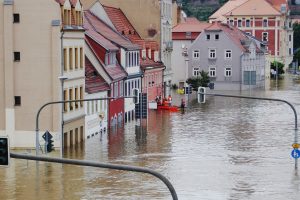
Susu Xu, an assistant professor in the Whiting School of Engineering’s Department of Civil and Systems Engineering, has been awarded a National Science Foundation (NSF) grant to study how coastal communities vulnerable to natural hazards and climate change can better adapt their housing to make their towns more resilient.
Funded through the Civil Infrastructure research for climate change Mitigation and Adaptation (CLIMA) program, Xu’s research aims to find ways to help vulnerable communities repair their homes following acute and chronic climate hazards—such as flooding, earthquakes, and hurricanes—that can harm people and property.
“Recently, we’ve seen a pattern of people leaving coastal communities following natural hazards due to a variety of reasons—prohibitive costs to rebuild or repair, infrastructure interruptions, and the likelihood of disaster recurrence. As a result, it can take longer for communities to return to status-quo, making the situation even more challenging for those who remain,” said Xu.
The research team includes experts from UC Berkeley and New York University. Drawing on methods from civil engineering and urban, network, and social science, the team will use artificial intelligence to analyze interactions between human behavior, built environments, and natural hazards.
Armed with an understanding of how people decide to either leave or remain in a coastal community following a natural disaster, the researchers will be able to identify practical ways to help communities adapt to climate change.
“What makes this research so crucial is that it addresses both the technical and social aspects of resilience, so communities can better prepare for and adapt to the changing climate,” Xu said. “The tools we develop during this study will guide data-driven resilience strategies, particularly in vulnerable coastal areas.”
Study collaborators include principal investigator Luis Ceferino of UC Berkeley, and co-principal investigators Maurizio Porfiri and Cristina-Ioana Dragomir of New York University.